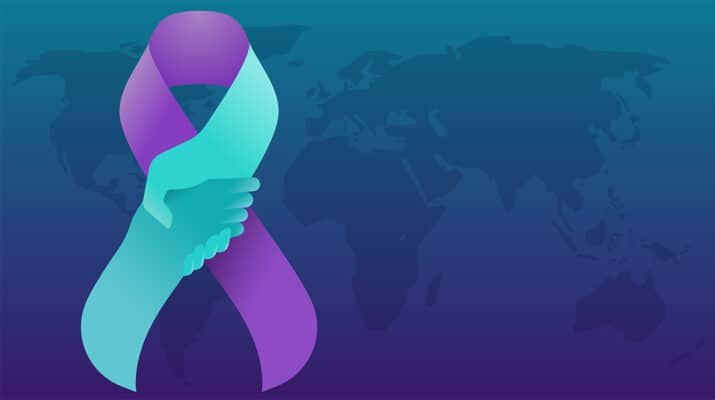There’s help for those hurting
By Deborah Jeanne Sergeant

The loss of a loved one is compounded when suicide was the cause of that loss.
In addition to the grief that accompanies any death, the surviving family may feel numerous other emotions that are difficult to experience.
“A peer-led grief support group offers families who have lost someone to suicide a unique space where they can connect with others who truly understand their pain,” said Kelly Ocampo, executive director of Hope for the Bereaved in Syracuse. “Sharing experiences with those who have faced similar loss fosters a sense of community, reduces feelings of isolation and provides valuable emotional support.
“Additionally, participants often find hope and resilience through hearing how others are navigating their own grief journeys.”
Understanding suicide can also help the surviving family members.
“Connecting with others in a structured and supportive environment can help individuals better understand the struggle of depression and suicidal ideation, understand they are not to blame and receive support from others,” said Monique Winnett, Ph.D., and clinical psychologist at St. Joseph’s Health.
Losing a loved one can feel surreal and more so if the cause of death is suicide. The conversations in a support group can help survivors’ emotions feel more normal, as they can range from sadness to regret to anger to guilt.
Other loss groups typically can’t provide the same level of understanding as suicide bereavement groups as the stigma attached to suicide makes it difficult for survivors to feel as welcomed in other groups.
“Families often want to keep it a secret when a member dies by suicide,” said physician Robert Gregory, director of the Psychiatry High Risk Program and professor at Norton College of Medicine at Upstate Medical University. “In addition to the social embarrassment, there is usually also a deep sense of guilt and anger that can interfere with the normal and healthy bereavement process. Family members may be asking themselves, ‘Why didn’t I recognize the signs, so obvious in retrospect?’ ‘Did that argument I had with them last week cause the suicide?’ ‘Why didn’t I reach out more?’”
He added that it’s also normal to feel anger toward the person who died because of the trauma and pain they caused. Or sometimes anger toward the healthcare providers who could not help prevent the person’s death.
“Groups, counselors and other supports may be very helpful for the family member to process their emotions in healthier ways, to facilitate the bereavement process and to normalize some of their reactions to reduce their sense of stigmatization,” Gregory said. “Suicide happens despite the best efforts of family members, friends, health care providers and the individual themselves.”
Joining a support group can facilitate healing through sharing what helps ease the pain and realize that it’s OK to experience their full range of emotions. The groups can also help people know how to deal with outsiders’ often inappropriate and painful questions and comments.
Overall, joining a support group can help the surviving family by feeling that others understand the type of pain they’re experiencing. That support can help them feel not so alone.
Where to Look for Help
The following organizations host group meetings and offer resources for people who have suffered loss through suicide:
Hope for the Bereaved
https://hopeforbereaved.com/services/support-groups
American Foundation for Suicide Prevention
https://afsp.org/chapter/greater-central-new-york
Alliance of Hope
National Alliance on Mental Illness

